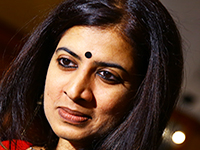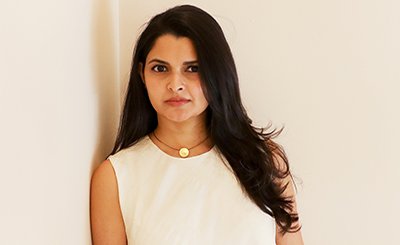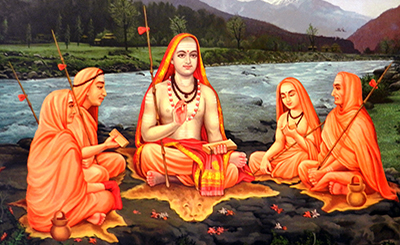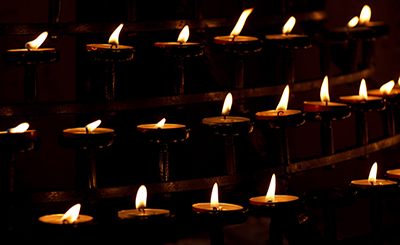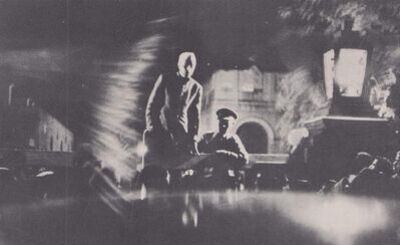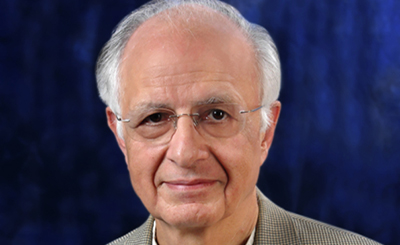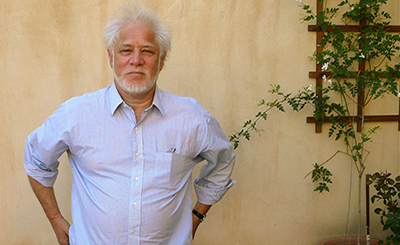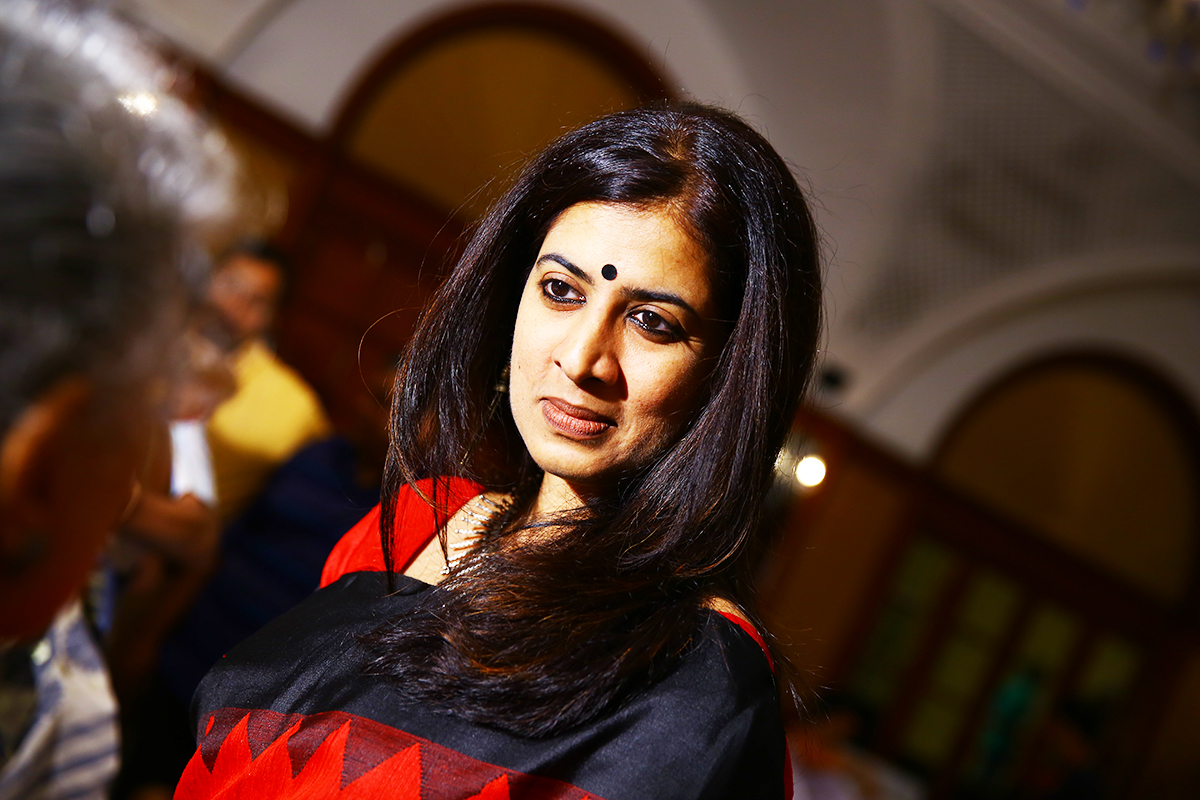
Arundhathi Subramaniam. Photo courtesy of the poet
Poet’s Note: Why Poetry?
Why poetry? The question is often implicit in people’s gazes when they hear of one’s creative pursuits. Why read poetry? And why on earth write it?
Why indeed? It certainly doesn’t improve the GNP, reverse the Arctic meltdown, or boost the quality of people’s sex lives. Recent American researchers claim that poets actually die sooner than other species of writers. And then, of course, everyone usually stays clear of you: readers and publishers in particular. You rarely see a meaty royalty cheque. And if you crave fame, you have to try not to live past the age of 33. (There’s nothing as vulgar as a live middle-aged poet.)
Is it then an option for losers or masochists? A valid question.
Here’s my take on why I still hang around poems.
Because it is the art of the murmured voice. If it raises its pitch, it distorts its own reality, compromises its own integrity. It is a reminder of the magic of the whisper, the sorcery of the hushed voice.
Because it allows me to inhabit a moment more fully than I would otherwise. Because it is the most vertical engagement with self that I know.
Because its guile lies in taking me unawares. Someone said it’s like dropping a petal down the Grand Canyon and waiting for an echo. True. And yet, echoes do happen. Not audible, measurable echoes. But major shifts along internal fault lines, subtle enduring realignments.
Because it disrupts all those snug oppositions I otherwise live by: day and night, precision and passion, mystery and illumination, work and play, truth and beauty. Poetry is about allowing lunar concerns into my day. About bringing question marks rather than full stops into my life.
Because it’s a way of inventing and exploring, composing and revealing, making and disarming all at once. And because it has chemistry: you’ve got to be more acidic — or alkaline — at the end of reading or writing a poem, or it isn’t a poem.
Because it reminds me that ideas are crunchy and things smoky. That there are passions of the mind and ideologies of the gut.
Because of its suddenness, its distillation, its toxic shock clarity, its verbal single maltness.
Because words don’t come easy. And when they do, they’re meant to be watched — not censoriously, with faith but also with caution. That’s because we don’t just use language, we’re used by it.
It’s easy to turn words into weapons, armours, territorial markers. But with every parry and thrust, with every act of glibness, with every dogmatic full stop, we move further away from the possibility of surprise. Of discovery. Of the startling confrontation of self with self.
Zoomsday
A world
full of windows
but no sign
of a door.
[Unpublished]
The World Takes a Breath
The world takes a breath
noisily —
recycling anodyne
text messages
about the wisdom
of looking within,
photographs of mute anguish
to give us our daily fix
of indignation,
a wild pandemic
of pieties.
Who’d have thought
an empty hour
was so much labour?
We walk the day most times
on steel girders
of habit
knowing that as long as there are lists
the world is safe,
and meaning won’t save us
(never has),
but rhythms will.
And only sometimes
does all the fumbling
and twitching
swivel
into
immaculate choreography
and the sky falls away
like blue laughter
and suddenly, we’re cycling,
hands free, hands free,
on air.
[published in The Indian Express, 2020, and in Singing in the Dark, ed. K Satchidanandan and Nishi Chawla, Penguin India, 2020]
Give Thanks
for the chance
to wander into those caves
far from surf and gull-cry,
from cursing sailors
and salted air,
where we hear our own voices
saying the same thing,
echoing, garbled, borrowed,
reminding us
of files, dark and corrupted,
deep in the gelatin
of some forgotten software,
reminding us that the virus
has been around a very long time.
[published in Singing in the Dark, ed. K Satchidanandan and Nishi Chawla, Penguin India, 2020]
If It Must Be Now
When glaciers thaw
and find there’s nothing perma
about frost
let there be the shock
of release
from petrified attitude
into melted light
and fuzzy velocity,
liberation
from angle
and the deep blue plaque
of fear
into pure continuum.
A kind of joy even.
Here then is the prayer
(and the time is always three am):
let liquefaction
not mean
liquidation.
[from Love Without a Story; Westland Amazon, India, 2019; Bloodaxe Books, UK, 2020]
Memo
Reaching for the summit,
but never forgetting coast —
the melancholy
of harbours by dusk,
women in summer dresses
on the streets of Nice,
the festive blaze
of vendors on Juhu beach,
evenings alive
with hope and buttered corn.
Never forgetting,
never forgetting even for a minute,
mean sea level.
[from Love Without a Story; Westland Amazon, India, 2019; Bloodaxe Books, UK, 2020]
The essay and the poems are part of our Poetry Special Issue (January 2021), curated by Shireen Quadri and Nawaid Anjum. © The Punch Magazine. No part of this essay or the new poems exclusively featured here should be reproduced anywhere without the prior permission of The Punch Magazine.
More from The Byword
Comments
*Comments will be moderated



